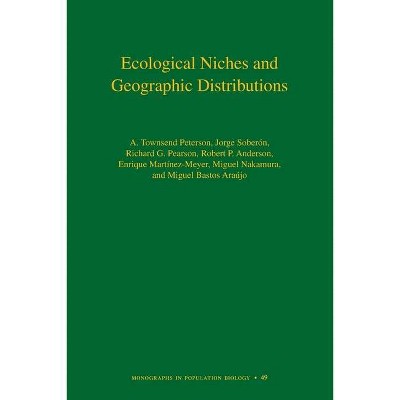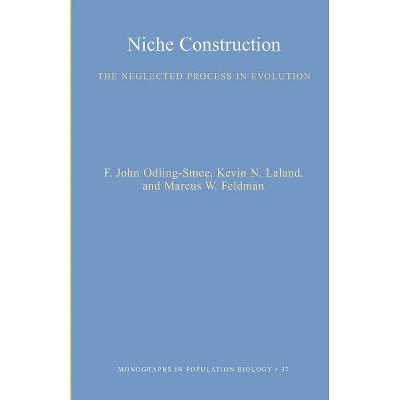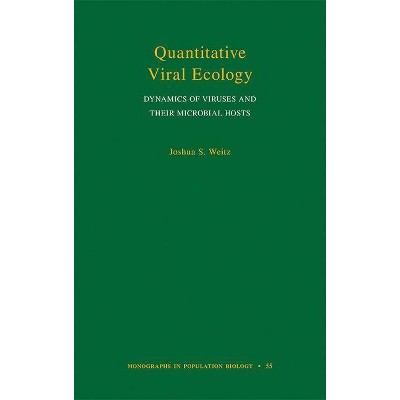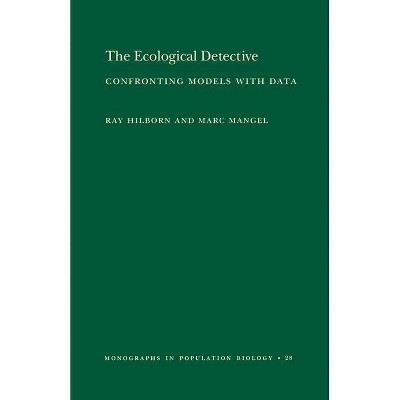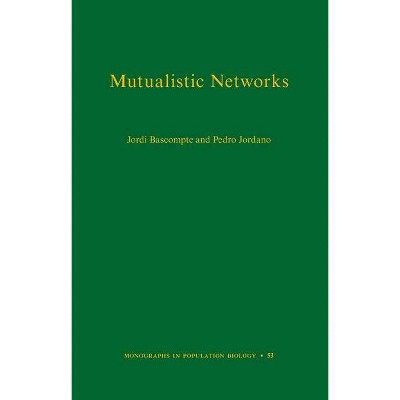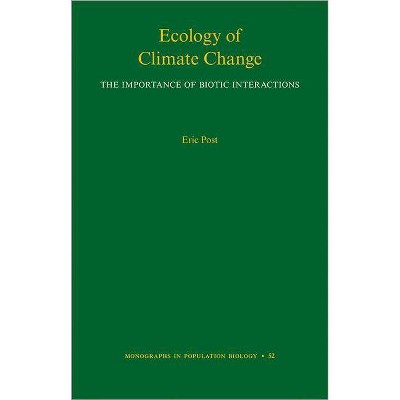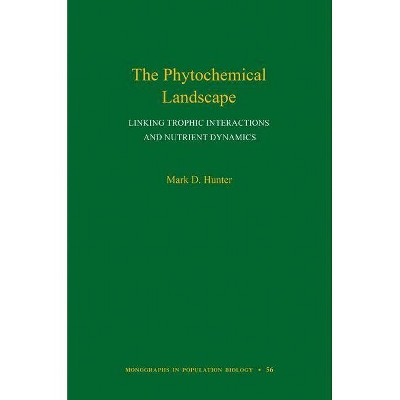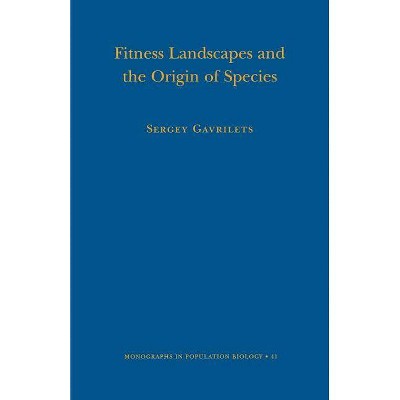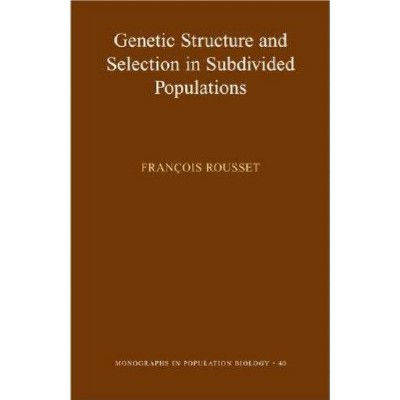Food Webs (Mpb-50) - (Monographs in Population Biology) by Kevin S McCann (Paperback)
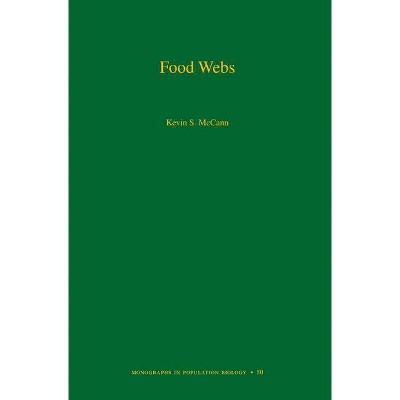
Similar Products
Products of same category from the store
AllProduct info
<p/><br></br><p><b> About the Book </b></p></br></br>"Human impacts are dramatically altering our natural ecosystems. The implications of these human impacts on the sustainability and functioning of these amazingly complex entities remains uncertain. As a result, food web theory has experienced a proliferation of research that seeks to address this critical area. This book synthesizes modern and classical results into a general theory. Finally, this book takes this general theoretical framework and discusses the implications of human impact for the stability and sustainability of ecological systems"--<p/><br></br><p><b> Book Synopsis </b></p></br></br><p>Human impacts are dramatically altering our natural ecosystems but the exact repercussions on ecological sustainability and function remain unclear. As a result, food web theory has experienced a proliferation of research seeking to address these critical areas. Arguing that the various recent and classical food web theories can be looked at collectively and in a highly consistent and testable way, <i>Food Webs</i> synthesizes and reconciles modern and classical perspectives into a general unified theory. <p/> Kevin McCann brings together outcomes from population-, community-, and ecosystem-level approaches under the common currency of energy or material fluxes. He shows that these approaches--often studied in isolation--all have the same general implications in terms of population dynamic stability. Specifically, increased fluxes of energy or material tend to destabilize populations, communities, and whole ecosystems. With this understanding, stabilizing structures at different levels of the ecological hierarchy can be identified and any population-, community-, or ecosystem-level structures that mute energy or material flow also stabilize systems dynamics. McCann uses this powerful general framework to discuss the effects of human impact on the stability and sustainability of ecological systems, and he demonstrates that there is clear empirical evidence that the structures supporting ecological systems have been dangerously eroded. <p/> Uniting the latest research on food webs with classical theories, this book will be a standard source in the understanding of natural food web functions.</p><p/><br></br><p><b> From the Back Cover </b></p></br></br><p>"McCann builds an elegant and concise framework to understand the emergent dynamics of food web systems. Precise and straightforward mathematics, clear definitions and models, and excellent descriptions make this an essential book for any community ecologist."<b>--Marcel Holyoak, University of California, Davis</b></p><p>"Understanding the structure of food webs is one of the major challenges for science in the twenty-first century. McCann provides a well-organized introduction into what has been done over the last thirty years and he offers deep insights and novel approaches that will pave the way for all future studies. This may well be one of the most important and influential books in ecology for several decades."<b>--Andrew Dobson, Princeton University</b></p><p>"Synthesizing a range of theoretical and empirical literature, this stimulating and timely book brings out specific structural features of food webs that can broadly stabilize ecological dynamics. The perspective provided by McCann as he builds from single species models, to modules of a few interacting species, to entire food webs, is crucial for understanding the dynamics of natural systems."<b>--Robert D. Holt, University of Florida</b></p><p>"Representing a major advance in ecological theory, this book is an up-to-date synthesis of what is known about the dynamics of food webs. Brilliant and original, it goes beyond anything else currently in print and will provide a foundation in this subject area for years to come."<b>--Donald L. DeAngelis, University of Miami</b></p><p>"There is no equivalent book that reviews food web theory, emphasizing both dynamic aspects and biological constraints. This book will appeal to ecologists across a range of subfields, applied mathematicians, and certain physicists. Providing information and approaches not found elsewhere, it will have an impact on the field."<b>--Alan Hastings, University of California, Davis</b></p><p/><br></br><p><b> Review Quotes </b></p></br></br><br>[T]his is a very exciting book that communicates theoretical concepts to a broad ecological audience. In addition, the overview over the countless seminal studies by McCann and co-workers make this book unique and a highly recommended read for all ecologists.<b>---Ulrich Brose, <i>Basic & Applied Ecology</i></b><br><br><i>Food Webs</i> is an imaginative but very concise book in terms of methodology and selection of concepts. It is extremely coherent, though some may think extremely selective in the models and concepts used. But to build a food web theory across different scales of organization, from single populations to real multispecies interaction networks, this selectivity is needed, and the unifying concept of stability makes it fascinating.<b>---Jose M. Montoya, <i>Ecology</i></b><br><br>This is a must-read for ecologists interested in ecosystem dynamics.-- "Choice"<br><br>This is potentially an indispensable book for ecologists and paleoecologists alike, synthesizing food-web theory and outcomes from population-level up to whole-ecosystem-level approaches. McCann offers clear explanations of the dynamics of food webs using a mathematical approach, and while the book will be of particular use to graduate students, it may also be of substantial use to undergraduate students as an advanced but very thorough introduction to the subject.<b>---Jo Hellawell, <i>Priscum</i></b><br><p/><br></br><p><b> About the Author </b></p></br></br><b>Kevin S. McCann</b> is associate professor of integrative biology at the University of Guelph.
Price History
Price Archive shows prices from various stores, lets you see history and find the cheapest. There is no actual sale on the website. For all support, inquiry and suggestion messagescommunication@pricearchive.us
